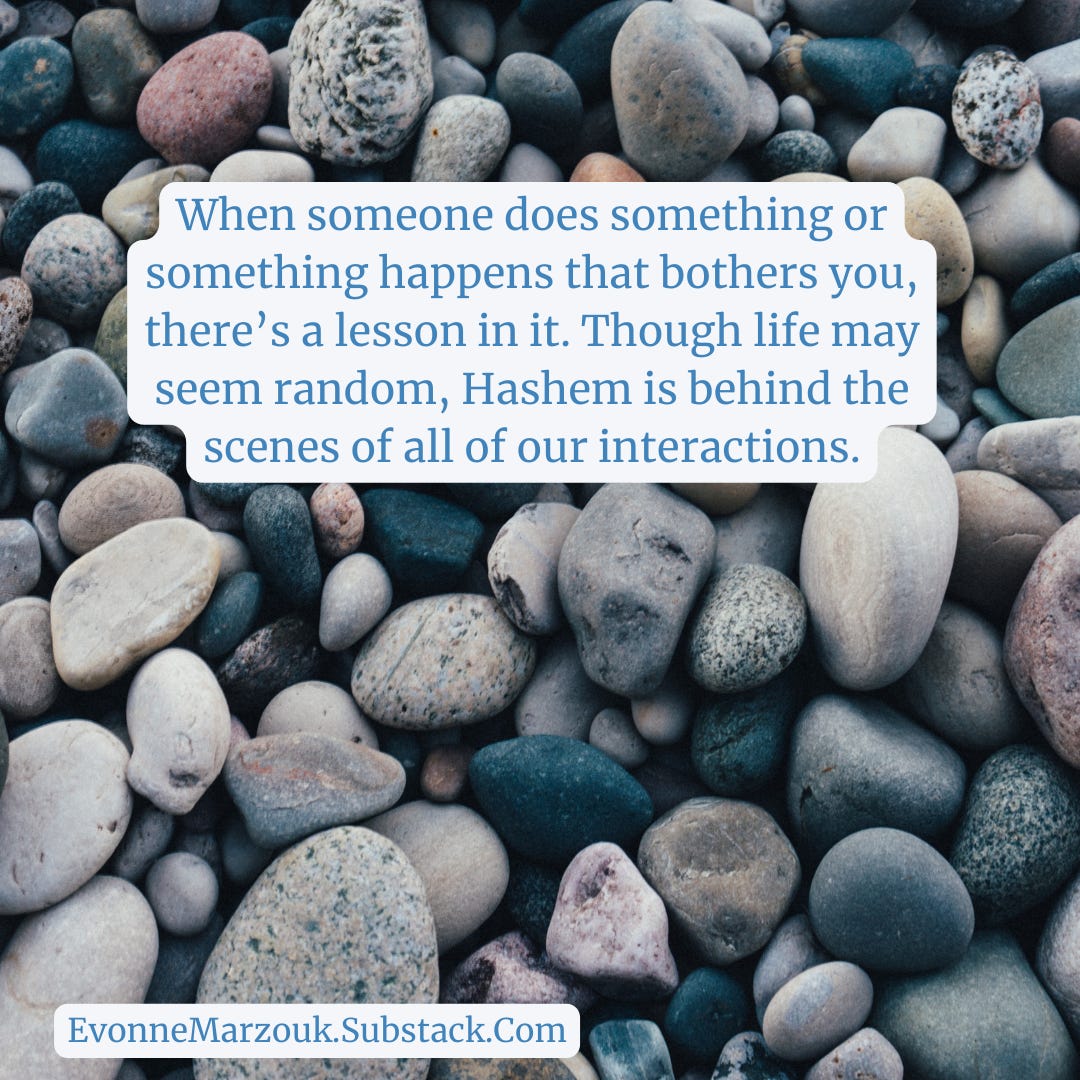Friends,
This week in the Jewish liturgical cycle, we read the Torah portion of Kedoshim. It begins with the instruction that Moshe is to speak to the entire assembly of the Children of Israel, to tell them: You shall be holy, for holy am I, Hashem your G-d. (Leviticus 19:2)
What does it mean to be holy? As typical, the Torah does not leave questions of spirituality to the imagination. Parshat Kedoshim continues with 51 mitzvot, 13 positive and 38 negative, which seem to define the term.
In just two verses of Kedoshim, the Sefer HaChinuch counts 6 mitzvot which may capture our entire relationship to other Jewish people.
You shall not hate your brother in your heart; you shall rebuke your fellow and do not bear a sin because of him. You shall not take revenge or bear a grudge against members of your people; you shall love your fellow as yourself – I am Hashem. (Leviticus 19:17-18)
The Sefer HaChinch (238-243) identifies the six mitzvot as:
The prohibition against hating one’s brethren
The religious duty to rebuke a fellow Jew for improper behavior
The prohibition against shaming a Jew
The prohibition against taking revenge
The prohibition against bearing a grudge
And the positive commandment of love/affection for a fellow Jew.
These commandments may at first appear simple, but I personally find them both contradictory and complex to implement. I want to focus most specifically on the prohibition against bearing a grudge, because it’s a particularly challenging one for us and can also be an access point to understanding others of them.
What does it mean to hold a grudge? The Sefer HaChinuch says:
“We were forbidden to keep in our heart any ill-feeling over the harm that any Jew did to us. Even if we should resolve not to repay him in kind for his deeds, the mere remembrance of his sin in the heart was forbidden us.”
To understand what it means to hold a grudge, we can contrast it with taking revenge. Revenge is responding to something another Jew did to harm us by taking the same or another negative action to harm them. The midrash Sifra gives this example:
If one asked another, “lend me your sickle” and the other does not lend it to him, and the next day the other says “Let me your pickaxe” and the neighbor responds “I will not lend it to you, in the same way you did not lend me your sickle.”
Holding a grudge is different. It’s when you do what is right but you’re still thinking in your heart – and maybe saying out loud – that you’re still upset about what happened before and not letting it go. The Midrash Sifra goes back to the original example, where a neighbor asks for a sickle, and the other does not lend it to him. The next day the other says “Let me your pickaxe,” and the neighbor responds, “Here’s that pickaxe, you can have it, even though you didn’t lend me your sickle.”
That’s holding a grudge.
For both of these prohibitions – taking revenge and bearing a grudge, the Sefer HaChinuch explains that the root of the mitzvah is so that a person knows and reflects that whatever happens to us, good or bad, is caused by G-d. When someone does something or something happens that bothers you, there’s a lesson in it. Though life may seem random, Hashem is behind the scenes of all of our interactions.
If we are suffering or experiencing struggle, we’re not supposed to focus our attention outward at the person who did the thing that caused us harm. We’re supposed to trust Hashem that it’s all meant to be, and see how we can do teshuva or grow from this experience.
An extreme example in the Torah is when Yosef tells his brothers, “Do not be distressed or reproach yourselves because you sold me here. It was to save life that G-d sent me ahead of you.” His brothers kidnapped him, and he didn’t take revenge or hold a grudge, because he trusted that everything that had happened was part of G-d’s plan. That’s a pretty high level of trust.
That said, I’m not talking right now about how we deal with serious traumas like a situation where a person was abused (G-d forbid), or how we relate to genuine enemies. We should certainly take action to protect ourselves from these kinds of threats both emotionally and physically.
The Sefer HaChinuch continues:
“Moreover, there is another great benefit resulting from the precept [of not holding a grudge or not take revenge]: to stop contention and remove hates from people’s hearts. And when there is peace among people, the Eternal One grants them peace.”
Do you keep a little internal list of people who have insulted your pride? I think many people keep such a list. Maybe someone didn’t say thank you when you did something nice for them, or made a negative comment when you made yourself vulnerable like speaking in public. Maybe they didn’t respond to your email request for help, or didn’t show up when you needed them too. Maybe they refused to write a blurb for your book. (Wait… just me?) I’m not sure what your triggers are but I do think everyone has them.
Even if you wouldn’t do anything to retaliate, if you’re keeping the list, that is holding a grudge. The Torah tells us this is harmful both to our individual trust of Hashem and to our collective peace.
In Pirkei Avot, it says, “Who is wise? The one who learns from every person.” (4:1) Most of our lives are lived in relationship. Our feelings toward others, our openness to learning from everyone, are fundamentally important to our success in our life’s purpose – whether in a marriage, a family, a community, or a career. If we hold grudges against people we are close to, some of those relationships might be filled with hurt and brokenness. And if we hold grudges against acquaintances, we wall ourselves off to opportunities and lessons those people might have for us.
So if we notice that we’re holding grudges against people in our lives, how can we let them go? Over on Aish.com, Riva Kent offers 4 Strategies for getting over holding a grudge:
Address the issue with the other person.
As the Torah says in the sentence right before this one, “You shall not hate your brother in your heart. Rebuke your neighbor, but do not bear a sin because of him.” The Sefer HaChinuch gives the very reason for the mitzvah of rebuke is that it “makes for peace and goodness among people… he will apologize to him, and the other will accept his apology and make peace with him. But if the other will not rebuke him, he will hate him in his heart and will cause him harm either then or at some other time.”
The Sefer HaChinuch describes how this should be approached, in secret, with soft language and gentle words, so that the other will not be ashamed. This rebuke comes from loving our neighbor as ourselves, and is offered from a place of trust and mutual respect. If you can tell someone they have hurt you in a sincere way without blame, you give them the opportunity to learn and apologize, and then you can let go of your grudge.
Judge the other person favorably (Pirkei Avot 1:6)
Maybe there is something about the situation that you didn’t understand. Maybe the person meant to help and it came out wrong. Maybe the person was overwhelmed with other circumstances or at the end of their rope. “Be kind,” a common adage says. “Everyone you meet is fighting a hard battle.” Though you can’t change what happened, you can reframe your thinking about the other person. Even if you still do not agree with what happened, you might be able to let go of the grudge and restore your relationship to the way it was before.
Look inwards.
The Talmud in Kiddushin 70a teaches that when a person sees a flaw in another, the flaw may actually be their own. If you are holding a grudge because you see another person as, say, being too judgmental or unreliable, consider whether there’s something you could work on for yourself. This might be part of the lesson you were meant to learn from the situation in the first place.
Finally, Don’t be petty.
Sometimes we hold grudges for incredibly small things. Don’t lose sight of the bigger picture. Actually consider what you are still upset about and whether it would be healthier for you to just let it go.
We live in a very polarized world right now, and everything these days seems to push us to putting other people into boxes – with us or against us.
We do not only hold grudges if someone does something that might hurt or offend us directly. A single post (or even lack of a post) on social media can lead us to unfriend someone and take them out of our lives. If we sense even a hint that someone is against us, we may never speak to them again.
Certainly, if we hear someone was involved in a political movement we disagree with on either side, that might be enough for a lifelong grudge these days. Instead of talking to each other, or trying to find solutions together, we literally unfriend one another.
This is a big world with a lot of different perspectives. Yet Hashem is one, and that means at the deepest level, we are all one. These mitzvot in Kedoshim can guide us to create unity during these difficult times, both within the Jewish community and to friends, neighbors and co-workers beyond.
Instead of bearing a grudge, we can judge others favorably, express our concerns humbly and honestly, and try to love even those who disagree with us. May this create the unity needed to bring us toward the ultimate peace we so desperately crave.
As the Sefer HaChinuch teaches, “And when there is peace among people, the Eternal One grants them peace.”
And may we see the return of the hostages speedily in our days.
Wishing you abundant blessing and healing,
Evonne
P.S. I wrote and delivered this dvar Torah for last week’s Shabbat mincha, but if it speaks to you, you are welcome to share it this week for your own dvar Torah needs. You can find more of my writings, interviews and articles blending Jewish wisdom with personal growth and empowerment on my website.
P.P.S. Cyberspace being what it is, this email may have been flagged as spam in your inbox. I promise, it's really me, trying to catch up with my impossibly long list after a month of Adar I rest, a month and a half of preparation, and Pesach. (No bot would know that but you do, right?) If you want to see more messages from me, please let your email service know I'm real and writing to you from my author account, evonnewrites@gmail.com.




Beautiful, Evonne.
Beautiful d’var and a much-needed perspective today.